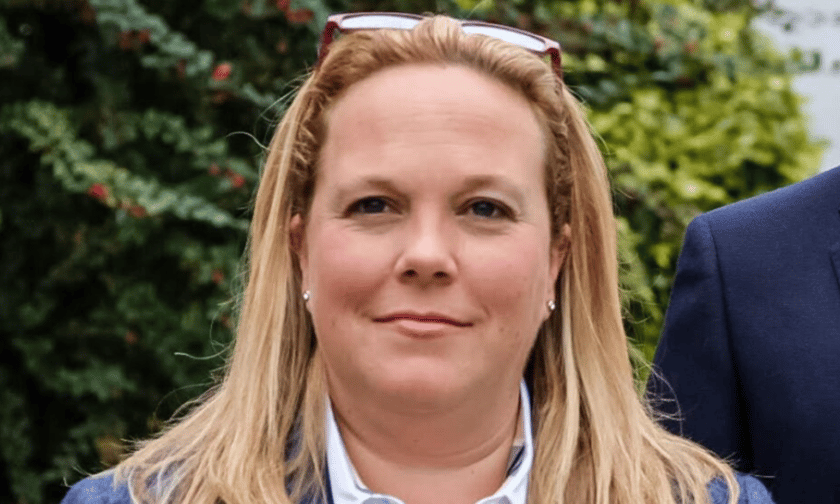

With over two decades of work in health insurance broking to her name, Emma Wood (pictured) has seen first-hand how the sector has evolved – and has a birds-eye view of where it will go next.
Having spent decades with two of the largest brokerages in the market, she cited the opportunity to join Broadway Insurance Brokers, and set up and lead its healthcare division as director as “incredibly exciting”. It was a leap of faith to join a boutique broking firm, she said, but the decision was made easy by the infectious enthusiasm and passion of Broadway’s CEO Daniel Lloyd-John.
“His enthusiasm was what really captured me, and our conversation was about how to lay the right foundations and build a strong division,” she said. “And it has gone from strength to strength. I don’t think either of us would have thought that just six months in, we’d be where we are now and having the conversations we’re having across the market.”
Looking across today’s healthcare insurance landscape, Wood highlighted that what has delineated the sector in the past was a focus on renewals that hinged on having the best price – something that was difficult because it’s a relatively level playing field. What’s changing, she said, is the likes of Broadway coming into play and examining whether policies are still fit for purpose for an individual or a business years down the line.
Employees want more than just a pay packet – they want someone who’s going to look after them. That means brokers need to really get to grips with what their clients – both commercial and private alike – are looking for from a policy, and how to make that offering highly valued.
“This insurance is non-compulsory, I’m not selling public liability or employer’s liability, this is a ‘nice to have’,” she said. “But our role is to show that this is more than a ‘nice to have’, it’s an essential policy now.”
What’s also interesting, Wood said, is to see how the coverage has evolved beyond just essential, immediate healthcare. There’s now a significant focus on preventative action and implementing meaningful benefit plans – and companies have evolved beyond the ‘whitewashing’ of benefits plans. Where nuance is required, however, is in recognizing that different employees at different tiers of organisations might not want to pay out the same premium value.
“It’s all about establishing what the problems are within the business, in terms of absences,” she said. “A lot of businesses know what their absence levels are, but they don't know what the problems are behind those absences. So, it's getting to the root of that. Once we've got that information, we can really look to tailor and bespoke a solution for them, so they have a strategy to help tackle these issues going forward.”
This active reviewing of what’s happening within an organisation isn’t a once-and-done activity, she said, but rather an ongoing process offering businesses a 360-perspective on how to support and engage their workforce. It’s an evolution backed by how insurers are developing and changing their services. Healthcare insurance is no longer just a case of buying a policy, it’s backed up by a range of additional services from virtual GPs, to health and wellbeing apps, to manager’s toolkits.
“There are so many companies I speak to who have grown rapidly, who still have the same people in HR who were there from day one, but now they have 500 employees,” she said. “And they’re getting asked about mental health policies and benefit plans, and they’re overwhelmed because they’re still trying to focus on the everyday running of the business, and their HR team’s not big enough.
“This coverage becomes an extension of their HR and is about to assist them and get them the support they need. It’s not just about medical insurance for elites and directors anymore, it’s about looking at real occupational health and wellbeing solutions and strategies for the whole business.”
It’s an exciting time to be in the health insurance market, Wood said, but also quite a challenging one given everything that’s happening with claims. Every insurer in the market is looking at ways to bring those claims down to keep premiums sustainable, and solutions are being sought in routes including preventative care and how generative AI can be used to effectively support preventative efforts.
“Health insurance has tended to be quite reactive and to pick up things once the diagnosis is in and has been established,” she said. “But now I see that insurers want to get that diagnosis as quickly as possible so they can contain and manage the claims more effectively, which hopefully will help the industry.”
As for her plans for Broadway’s healthcare division in 2024 and beyond, Wood highlighted that her main focus has been on building the foundations of the business and putting together the right propositions for insurers and clients alike. With this work largely done, she said, her emphasis is on continuing to grow among existing and prospective clients.
“We will also be growing the team and growing our existing skillset, which is quite exciting,” she said. “I’m excited about recruiting some really talented people and giving them the opportunity to grow professionally and personally. I’ve found that working at Broadway after 20 years in the industry has given me a newfound love for what I’m doing. And I’m looking forward to recruiting those entrepreneurial individuals who want to grow and be part of something that’s a real team effort.”
